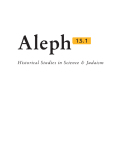
Aleph-Historical Studies in Science & Judaism
metrics 2024
Illuminating Historical Connections Between Faith and Discovery
Introduction
Aleph-Historical Studies in Science & Judaism, published by Indiana University Press, is a pivotal journal at the intersection of history, religious studies, and the philosophy of science. With an ISSN of 1565-1525 and an E-ISSN of 1565-5423, this journal has gained recognition for its insightful exploration of the complex relationships between scientific practice and Jewish thought from 2009 to 2023. Operating from the heart of the United States, Aleph currently holds a Q4 category ranking in History, History and Philosophy of Science, and Religious Studies, reflecting a growing interest in its unique contributions to these fields. Notably, it ranks within the 79th percentile in Arts and Humanities History and Religious Studies, underscoring its significance in advancing scholarly dialogue. Although currently not an Open Access journal, it remains an essential resource for researchers, professionals, and students dedicated to uncovering the narratives that shape our understanding of science and religion.
Metrics 2024
 0.10
0.10 0.20
0.20 0.20
0.20 8
8Metrics History
Rank 2024
Scopus
IF (Web Of Science)
JCI (Web Of Science)
Quartile History
Similar Journals
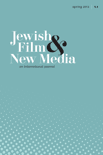
Jewish Film & New Media-An International Journal
Chronicling the Evolution of Jewish Narratives in Film and New MediaJewish Film & New Media: An International Journal, published by Wayne State University Press, serves as a crucial platform for scholars and practitioners within the realms of Film Studies, Jewish Studies, and Media Studies. Since its inception, the journal has explored the intersection between Jewish culture and cinematic representation while also addressing contemporary media narratives. With an ISSN of 2169-0324 and E-ISSN 2169-0332, it is indexed in major databases, showcasing solid rankings in various disciplines, including a commendable Q2 rank in Visual Arts and Performing Arts. Despite its current Q4 categorizations in Anthropology and Communication, the journal is noted for its engaging contributions that sow rich discussions about Jewish identity, filmic expression, and media representation. Researchers and students alike benefit from the journal’s wealth of interdisciplinary scholarship, which spans converged years from 2013 to 2017 and 2019 to 2022, ensuring a robust timeline of critical inquiry. As an essential resource for understanding the nuances of Jewish film and new media, this journal occupies a unique niche, inviting contributions that push the boundaries of current academic dialogue.
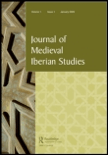
Journal of Medieval Iberian Studies
Fostering Innovative Research in Iberian HistoryThe Journal of Medieval Iberian Studies is a leading academic journal published by Routledge Journals, Taylor & Francis Ltd, dedicated to exploring the diverse and rich tapestry of medieval Iberian history and culture. With its ISSN 1754-6559 and E-ISSN 1754-6567, this journal serves as a vital resource for scholars engaged in the fields of cultural studies and history, attaining a prestigious Q1 ranking in both categories as of 2023. The journal is recognized for its significant contribution to the humanities, featuring peer-reviewed articles that foster innovative research and critical discourse on medieval Iberia from 2010 to 2024. Spanning an array of topics, it encapsulates interdisciplinary approaches to medieval studies, making it an essential publication for researchers, professionals, and students alike who seek to deepen their understanding of this pivotal period in history. Although it currently does not offer open access options, the journal is committed to advancing scholarly discussion and knowledge dissemination within the academic community.
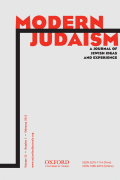
MODERN JUDAISM
Exploring the Depths of Jewish Thought and CultureMODERN JUDAISM is a premier journal dedicated to the multifaceted exploration of Jewish culture, history, and religious practice, providing a significant platform for scholarly discourse since its inception in 1981. Published by Oxford University Press Inc in the United States, this journal stands out with its diverse engagement across disciplines, reflected in its commendable 2023 category quartiles: Q2 in Cultural Studies and History, Q1 in Religious Studies, and notable rankings in Political Science and Sociology. With an impact factor that underscores its rigorous peer-review process and scholarly relevance, MODERN JUDAISM serves as an essential resource for researchers, professionals, and students alike, fostering an academic environment conducive to innovative ideas and comprehensive studies. Although not open access, the journal remains crucial for anyone looking to deepen their understanding of contemporary Jewish thought and its intersection with broader cultural and political currents. For further inquiry or submissions, please refer to the Journals Department at 2001 Evans Rd, Cary, NC 27513.
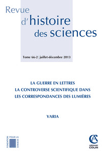
Revue d Histoire des Sciences
Delving Deep into the Heritage of Scientific Progress.Revue d'Histoire des Sciences is a distinguished academic journal published by Armand Colin, focusing on the intricate interplay of history and philosophy within the sciences. Since its inception in 1973, the journal has served as a vital platform for researchers, scholars, and students interested in exploring the historical dimensions of scientific development. With an ISSN of 0151-4105 and an E-ISSN of 1969-6582, this journal is recognized within the academic community, achieving a modest 2023 Scopus ranking of Q3 in History and Philosophy of Science, positioning it within the 41st percentile of its category. The journal offers a prestigious space for rigorous discourse, critical analysis, and innovative research aimed at advancing our understanding of the scientific enterprise's past. While it operates under a traditional access model, the ongoing commitment to rich scholarly content ensures that the contributions will resonate with those dedicated to the intersections of history, science, and philosophy, providing insights into how historical context shapes scientific inquiry and advancement.
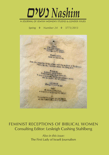
Nashim-A Journal of Jewish Womens Studies & Gender Issues
Connecting Cultures, Challenging NormsNashim: A Journal of Jewish Women's Studies & Gender Issues, published by Indiana University Press, stands as a pivotal platform for interdisciplinary scholarship at the intersection of Jewish studies, gender studies, and cultural discourse. With an ISSN of 0793-8934 and e-ISSN 1565-5288, this journal offers a vital repository of research and critical analysis, specifically highlighting the experiences and contributions of Jewish women across historical and contemporary contexts. Although classified in Q4 of the 2023 category quartiles for Arts and Humanities, Cultural Studies, and Gender Studies, it serves to amplify underrepresented voices and themes that are crucial for understanding societal dynamics. The journal spans from 2013 to 2024 and welcomes contributions that engage thoughtfully with gender issues in Jewish contexts, making it an essential resource for researchers, educators, and students alike, who are dedicated to exploring the rich complexities within this field of study. While Open Access is not currently supported, access to its in-depth articles can be sought through institutional databases and libraries, ensuring that its impactful research reaches those who seek it.

JOURNAL OF JEWISH THOUGHT & PHILOSOPHY
Navigating the Rich Tapestry of Jewish Thought and CultureThe JOURNAL OF JEWISH THOUGHT & PHILOSOPHY, published by BRILL, stands as a significant academic resource since its inception in 1993. With the ISSN 1053-699X, this interdisciplinary journal uniquely bridges various fields including Literature and Literary Theory, Philosophy, and Religious Studies, providing a platform for rigorous exploration of Jewish intellectual traditions and their broader cultural implications. Holding esteemed rankings across multiple categories, including Q1 in Literature and Literary Theory and Q2 in Philosophy, the journal appeals to researchers and scholars worldwide. The journal is not open access but is available through numerous academic libraries, making it accessible to those dedicated to advancing knowledge in Jewish thought. By fostering critical discourse and innovative scholarship, it remains an essential resource for understanding complex intersections of faith, ethics, and society from a Jewish perspective.
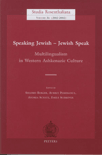
STUDIA ROSENTHALIANA
Fostering Discourse on Jewish Identity and HistorySTUDIA ROSENTHALIANA is a distinguished journal published by Amsterdam University Press, specializing in the interdisciplinary study of Jewish culture and history, particularly as it relates to the field of Rosenthaliana, encompassing literature, art, and historical scholarship. With a robust academic legacy dating back to its inception in 1970, the journal has evolved through various publication phases, maintaining a commitment to fostering scholarly discourse and disseminating significant research. Although it does not currently participate in an open access model, STUDIA ROSENTHALIANA continues to contribute invaluable insights to the fields of Jewish studies, cultural analysis, and historical research. Researchers, professionals, and students can benefit from its comprehensive essays, critical reviews, and analytical studies that enrich our understanding of Jewish heritage and modern implications. The journal's influence and relevance in its field make it an essential resource for anyone invested in contemporary debates and analyses concerning Jewish culture and identity.
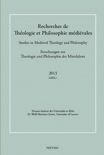
Recherches de Theologie et Philosophie Medievales
Charting New Territories in Medieval StudiesRecherches de Theologie et Philosophie Medievales is a distinguished scholarly journal dedicated to the exploration of medieval theology and philosophy, published by PEETERS in Belgium. With an ISSN of 1370-7493 and an E-ISSN of 1783-1717, it has become an essential resource for researchers and scholars within its domain since its inception in 1996. This journal occupies a notable position, recognized in the Q3 category across critical fields such as History, Philosophy, and Religious Studies in 2023, showcasing its valuable contribution to academic discourse. The journal ranks impressively in Scopus, holding positions of #202, #576, and #327 in Religious Studies, History, and Philosophy respectively, placing it in the 68th, 67th, and 59th percentiles. Though it operates under traditional access models, its rigorous peer-reviewed articles provide in-depth analyses and perspectives that are invaluable for students, academics, and professionals alike, making it an indispensable component of medieval studies.

Journal for the Study of Judaism
Exploring the Rich Tapestry of Jewish ThoughtJournal for the Study of Judaism, published by BRILL, serves as a vital platform for scholarly discourse in the fields of History, Literature and Literary Theory, and Religious Studies. With a commendable impact factor and ranking in the Q2 and Q3 quartiles across its respective categories, this journal facilitates high-quality research that explores the multi-faceted dimensions of Jewish studies from its inception in 1970 to the present day. For those who engage with the journal, the commitment to rigorous peer-review processes ensures publication of significant articles that advance knowledge and foster discussions within the academic community. As an essential resource for researchers, professionals, and students alike, the journal continues to enrich the understanding of Judaism through esteemed contributions of scholarship and critical analysis. The journal’s rich legacy and commitment to excellence make it an indispensable tool for those seeking to deepen their insight into Jewish studies and its broader implications.
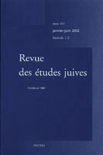
REVUE DES ETUDES JUIVES
Connecting Scholars to Contemporary and Historical Jewish IssuesREVUE DES ETUDES JUIVES, published by PEETERS, stands as a vital platform for scholarly discourse in the realms of Cultural Studies, History, Literature and Literary Theory, and Religious Studies. Based in Belgium, this journal, bearing the ISSN 0484-8616 and E-ISSN 1783-175X, has been faithfully chronicling research since its inception, with comprehensive coverage spanning from 1967, 1969, and several periods thereafter until 2023. Although categorized in Q4 quartiles across its fields—showing a diverse yet niche presence—it provides an invaluable space for emerging voices and established scholars to explore Jewish studies in a multidisciplinary context. Despite its compact impact factor and Scopus rankings reflecting its emerging status in the academic community, the journal is committed to fostering dialogue on the cultural and historical aspects of Jewish identity, offering a unique opportunity for researchers, professionals, and students to engage with contemporary and historical issues of Jewish significance. As a non-open access resource, it appeals to those seeking rigorous academic inquiry supported by Peeters' esteemed publishing acumen.